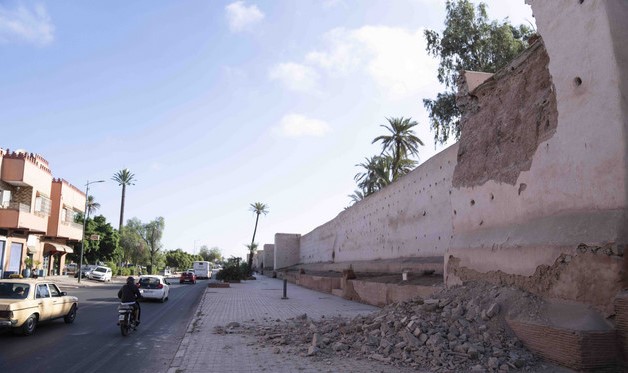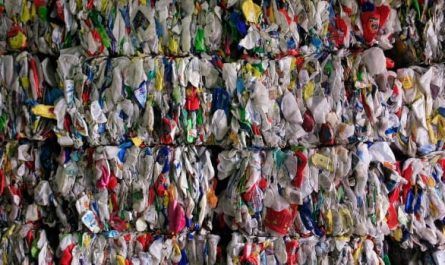Late Friday night, a rare and strong earthquake hit Morocco. More than 1,000 people died, and buildings from villages in the Atlas Mountains to the old city of Marrakech were damaged. But the full number of deaths wasn’t known because rescuers were having trouble getting to the hardest-hit mountain towns because the roads were full of rocks.
When the earthquake woke people up, they ran out into the streets in fear and shock. People gathered in the streets of Marrakech late at night because they were afraid to go back inside buildings that might still be unsteady. This was shown on state TV.
A man said that he was at an apartment nearby when dishes and wall hangings started falling from the ceiling and knocking people off their feet and chairs. A woman said she ran out of her house when she felt a “intense vibration.” A man who was in bed with a child said that the shaking woke him up.
The magnitude 6.8 quake was the strongest to hit Morocco in 120 years. It brought down buildings and walls in ancient cities made of stone and masonry that were not made to survive earthquakes.
Bill McGuire, a professor emeritus of geophysical and climate hazards at University College London, said, “The problem is that where destructive earthquakes are rare, buildings aren’t built strong enough to withstand strong ground shaking. As a result, many of them collapse, causing a lot of deaths.” “Once we know more, I think the final number of deaths will be in the thousands. Aftershocks are likely, which will cause more deaths and make it harder to find people who need help.
In Marrakech, the famous Koutoubia Mosque, which was built in the 1200s, was damaged, but it wasn’t clear how much. Its tower, which is 226 feet tall, is called the “roof of Marrakech.” Moroccans also shared videos showing damage to parts of the famous red walls that surround the old city, which is a UNESCO World Heritage site.
Morocco’s Interior Ministry said Saturday morning that at least 1037 people died, most of them in Marrakech and five nearby provinces. Another 1204 people were hurt. The ministry wrote that 721 of the people who were hurt were badly hurt.
Rescuers worked all night long, looking for people who might still be alive in the dark, dust, and rubble.
The mayor of a town near the epicenter of the earthquake told a Moroccan news site, 2M, that some homes in nearby towns had partially or completely collapsed, and that in some places, power and roads were cut off.
Abderrahim Ait Daoud, the head of the town of Talat N’Yaaqoub, said that officials are working to clear the roads in Al Haouz Province so that ambulances and aid can get to the people who need it. However, he said, it will take time to find out how bad the damage is because mountain villages are spread out.
The Moroccan military and emergency services sent help to the damaged areas, but the roads leading to the mountainous area around the epicenter were clogged with cars and stopped by fallen rocks, which slowed rescue efforts. The official news service MAP said that trucks with blankets, camp beds, and lighting equipment were trying to reach that hard-hit area.
On the steep, winding road from Marrakech to Al Haouz, ambulances with blaring sirens and honking cars drove around piles of red rock that had fallen from the mountainside and stopped the road. Workers from the Red Cross tried to move a big rock that was in the way of a two-lane highway.
Later Saturday morning in Marrakech, ambulances and motorbikes buzzed around the edge of the old city, where most things were back to normal. Tourists and other people walking by had to get around roadblocks and take pictures of parts of the clay-ochre wall that had broken and dropped pieces and dust onto the path and street.
As condolences poured in from countries around Europe, a Group of 20 summit in India, the Middle East, and other places, world leaders offered to send in help or rescue teams. The president of Turkey, where tens of thousands of people died in a big earthquake earlier this year, was one of the people who offered to help. France and Germany, where there are a lot of people with Moroccan roots, have also offered to help, and both the leaders of Ukraine and Russia have said they back Moroccans.
The Moroccan government has not officially asked for help, which is a necessary step before rescue teams from other countries can be sent in.
The U.S. Geological Survey said the quake hit at 11:11 p.m. and had a preliminary magnitude of 6.8. It shook the ground for several seconds. A 19-minute aftershock with a magnitude of 4.9 was recorded by a U.S. agency.
Near the town of Ighil in Al Haouz Province, about 43.5 miles south of Marrakech, was where Friday’s earthquake started. Al Haouz is known for its beautiful towns and valleys in the High Atlas, as well as its villages built into the sides of mountains.
The USGS said the epicenter was 11 miles below the Earth’s surface, while Morocco’s seismic service said it was 7 miles down. These kinds of small tremors are more dangerous.
Initial reports show that there was a lot of damage and death in the Marrakech-Safi area, which is home to more than 4.5 million people, according to state numbers.
North Africa doesn’t have too many earthquakes. Lahcen Mhanni, the head of the National Institute of Geophysics’s Seismic Monitoring and Warning Department, told 2M TV that the earthquake was the largest ever recorded in the area.
In 1960, a magnitude 5.8 earthquake hit near the city of Agadir in Morocco, killing thousands of people.
The quake in Agadir caused Morocco to change its building rules, but many buildings, especially homes in rural areas, are not made to survive such tremors.
In 2004, more than 600 people died when a 6.4 magnitude earthquake hit near the city of Al Hoceima on the Mediterranean coast.
The quake on Friday could be felt as far away as Portugal and Algeria, according to the Portuguese Institute for Sea and Atmosphere and Algeria’s Civil Defense agency, which is in charge of emergency action.




